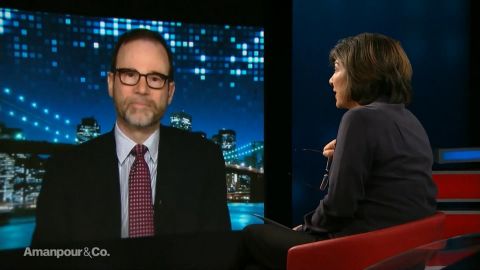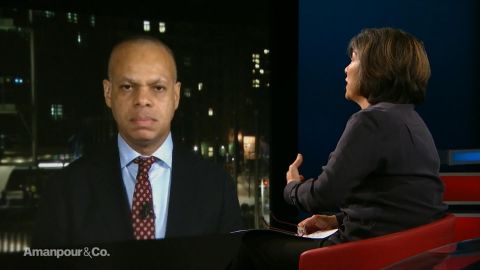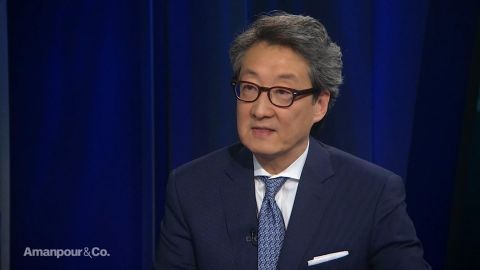Read Transcript EXPAND
CHRISTIANE AMANPOUR: What more do you know about the fate of your journalist? After all, Vice President Pence was recently — he recently read the Riot act to Aung San Suu Kyi, the de facto leader.
ADLER: Well, just today the high court accepted our appeal — accepted to hear our appeal. So at least we hope to be able to go forward on that. What we really want to happen is for there to be a pardon, which in really the hands of Aung San Suu Kyi because a pardon can happen immediately and we just want to get these wonderful journalists out. They’ve been in prison almost a year. They’re entirely innocent. The — every single observer of that trial recognized that it was a complete sham and total set up. These were people who were just reporting, just doing their jobs. And we want to see them out.
ADLER: And I wonder what Aung San Suu Kyi said to Vice President Pence and what she said to you about this. I mean, they really have sort of epitomized the ongoing problems and dangers that journalists face. And I mean, I can’t even imagine what it must have been for them in a Facebook era where we heard that anti-Rohingya statement has been ginned up on these platforms by these groups on Facebook.
ADLER: Yes, we did a report that found 1,000 instances of hate speech against Rohingya Muslims on Facebook in Myanmar. And at the time, I believe Facebook had four Burmese speakers monitoring, I think the 7 million people who use Facebook. Essentially, in Myanmar, Facebook is the internet, so that’s been the real challenge for us. But also, we’re really focusing on free press. Aung san Suu Kyi has talked about democratization of the country, has talked about the importance of the free press. When she first came to power, she said that she wanted to get prisoners of conscience released as quickly as possible. And we view our journalists in that category. They were reporting on a massacre of ten Muslims in Rakhine state. They had photographs both of the people about to be massacred and then photographs of them in a mass grave having been both hacked to death and shot to death. And that was why they were arrested. They were arrested to try to prevent us from running that story and we went ahead and ran the story. And they ended up — the government ended up recognizing that it was true, and in fact, arresting the people responsible as your report showed. So our view is, it’s in the interest of Aung San Suu Kyi and the interests of Myanmar to release them. It’ll show that they care about democracy, that they care about due process, that they want to be part of the global community. It will help head up the relationships with the rest of the world. So we think a pardon would be beneficial to Aung San Suu Kyi, beneficial to the people there and, of course, would get our people out of prison; they’ve been languishing in a prison for almost a year.
About This Episode EXPAND
Christiane Amanpour speaks with Victor Cha, former member of the U.S. National Security Council; Patrick Gaspard, President of the Open Society Foundations; and Stephen Adler, President and Editor-in-Chief at Reuters. Michel Martin speaks with actress Jenifer Lewis.
LEARN MORE



